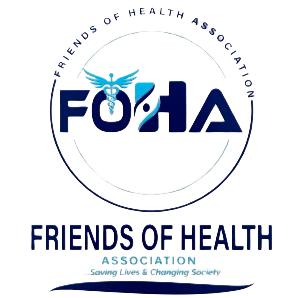KEY MESSAGES FOR CHOLERA CONTROL
COOK YOUR FOOD – BOIL YOUR WATER – WASH YOUR HANDS
PERSONAL HYGIENE
• Wash your hands with soap, ashes, or lime:
o before cooking,
o before eating and
o before feeding your children,
o after using the latrine or cleaning your children after they have used the latrine.
• Wash all parts of your hands – front, back, between the fingers, under nails.
• Use the latrine to defecate.
• Keep the latrine clean.
FOOD
• Cook raw food thoroughly.
• Eat cooked foods immediately.
• Store cooked food carefully in refrigerator.
• Reheat cooked food thoroughly.
• Avoid contact between raw food and cooked food.
• Eat fruit and vegetable you have peeled yourself.
• Keep all kitchen surfaces clean.
• Wash your cutting board especially well with soap and water.
• Wash your utensils and dishes with soap and water.
COOK IT – PEEL IT – OR LEAVE IT
SAFE DRINKING-WATER
• Even if it looks clear, water can contain cholera germs.
• Boil, or add drops of chlorine to the water before drinking.
• Keep drinking-water in a clean, covered pot or bucket or other container with a small opening and a cover. It should be used within 24 hours of collection.
• Pour the water from the container – do not dip a cup into the container.
• If dipping into the water container cannot be avoided, use a cup or other utensil with a handle.
WELLS
• Do not defecate or urinate in or near a source of drinking-water.
• Do not wash yourself, your clothes, or your pots and utensils in the source of drinking-water (stream, river, or water hole).
• Open wells must be covered when not in use to avoid contamination.
• The buckets used to collect water should be hung up when not in use – they must not be left on a dirty surface.
• The area surrounding a well or a hand pump must be kept as clean as possible.
• Get rid of refuse and stagnant water around a water source
FOR PEOPLE WITH DIARRHOEA
• The biggest danger of cholera is loss of water from the body.
• Do not panic, but act quickly.
• Drink a solution of oral rehydration salts made with safe (boiled or chlorinated) water.
• Go immediately to the health centre. Continue drinking as you go.
TAKING CARE OF PATIENTS
• Wash your hands after taking care of patients, touching them, their stools, vomit, or clothes.
• Avoid contaminating a water source by washing a patient’s clothes in it.
• Stools and vomit from a cholera patient can be mixed with disinfectant (e.g. cresol).
• Disinfect the patient’s clothing and bedding with a solution of chlorine (0.05%) or by stirring them in boiling water or by drying them thoroughly in the sun before and after normal washing.
ORAL REHYDRATION SALT (ORS)
ORS is a sodium and glucose solution which is prepared by diluting 1 sachet of ORS in 1 litre of safe water. It is important to administer the solution in small amounts at regular intervals on a continuous basis. In case ORS packets are not available, homemade solutions consisting of either half a small spoon of salt and six level small spoons of sugar dissolved in one litre of safe water, or lightly salted rice water or even plain water may be given to PREVENT or DELAY the onset of dehydration on the way to the health facility.
Key Messages
• Cholera can rapidly lead to severe dehydration and death if left untreated.
• ORS can successfully treat 80% of cholera patients, both adults and children.
• ORS has to be given early at home to avert delays in rehydration and death.
• In the absence of ORS packets, homemade solutions can be administered.
• Many lives can be saved if ORS is being used early at home, while waiting to get access to proper health care.
• Making ORS available at household and community levels can avert unnecessary deaths and contributes to diminishing case fatality rates, particularly in resource-poor settings.
• Providing nutritious food as well as continuing breastfeeding for infants and young children should continue simultaneously with administering appropriate fluids or ORS.
REMEMBER
WHO does not see any contradiction in making ORS packages available to households and non-medical personnel outside health care facilities.
source: GHS
{jcomments on}
